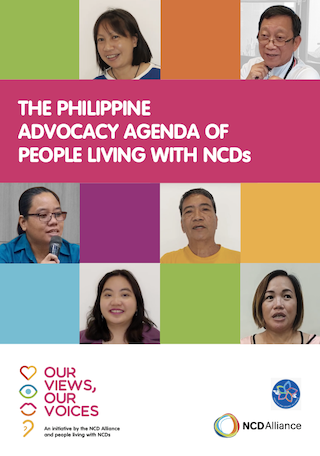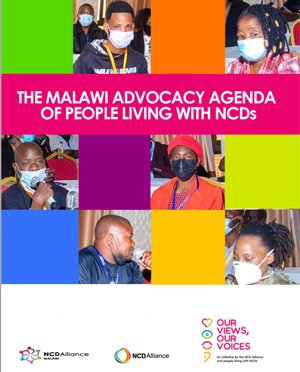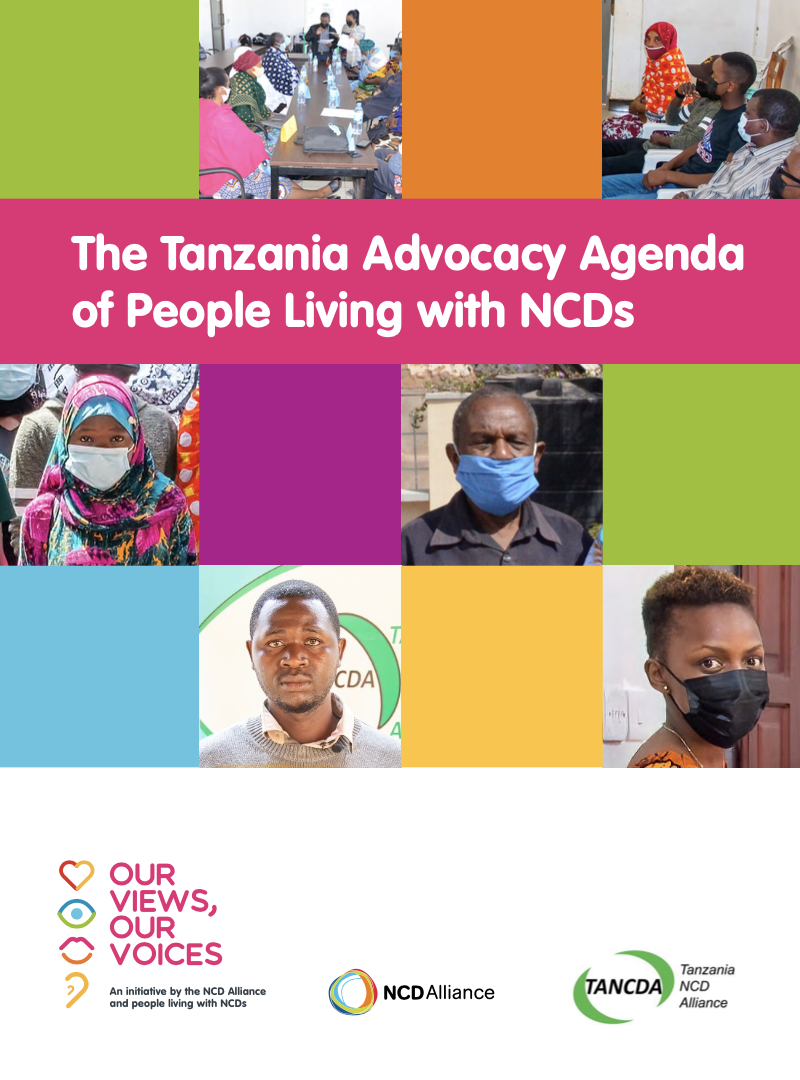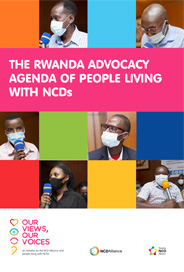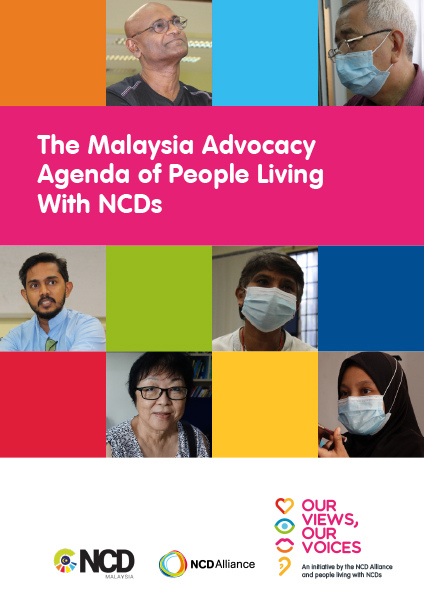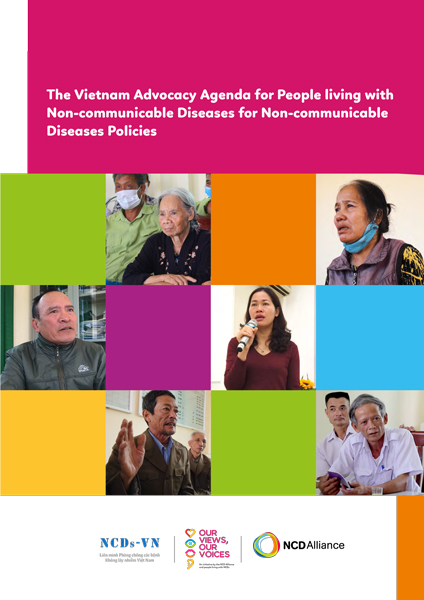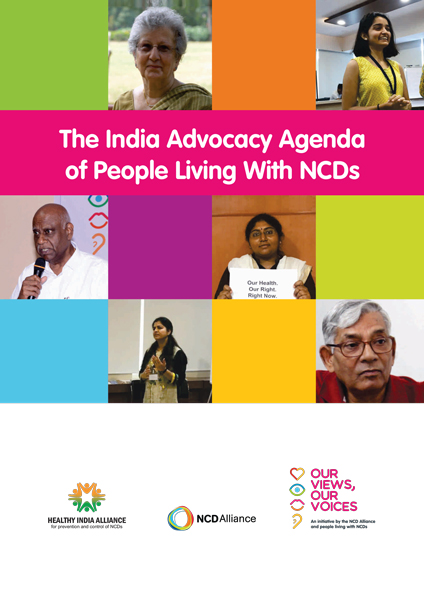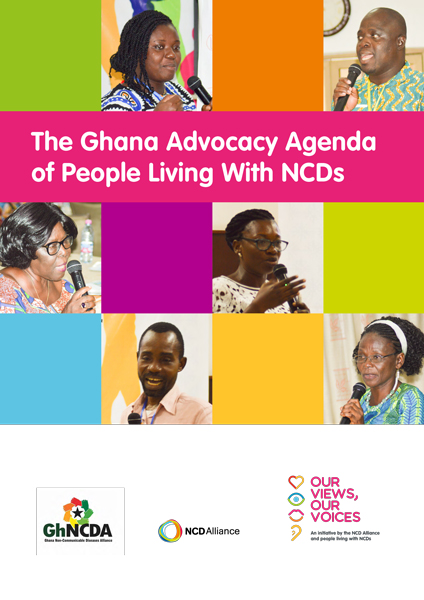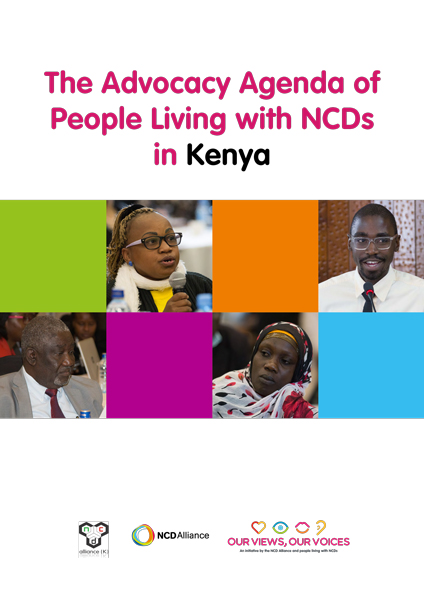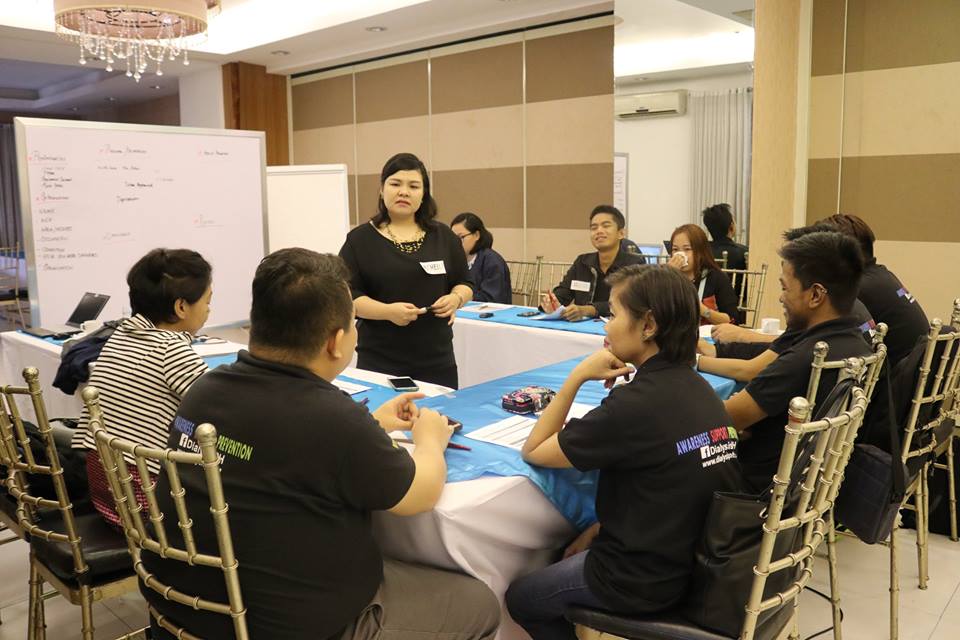
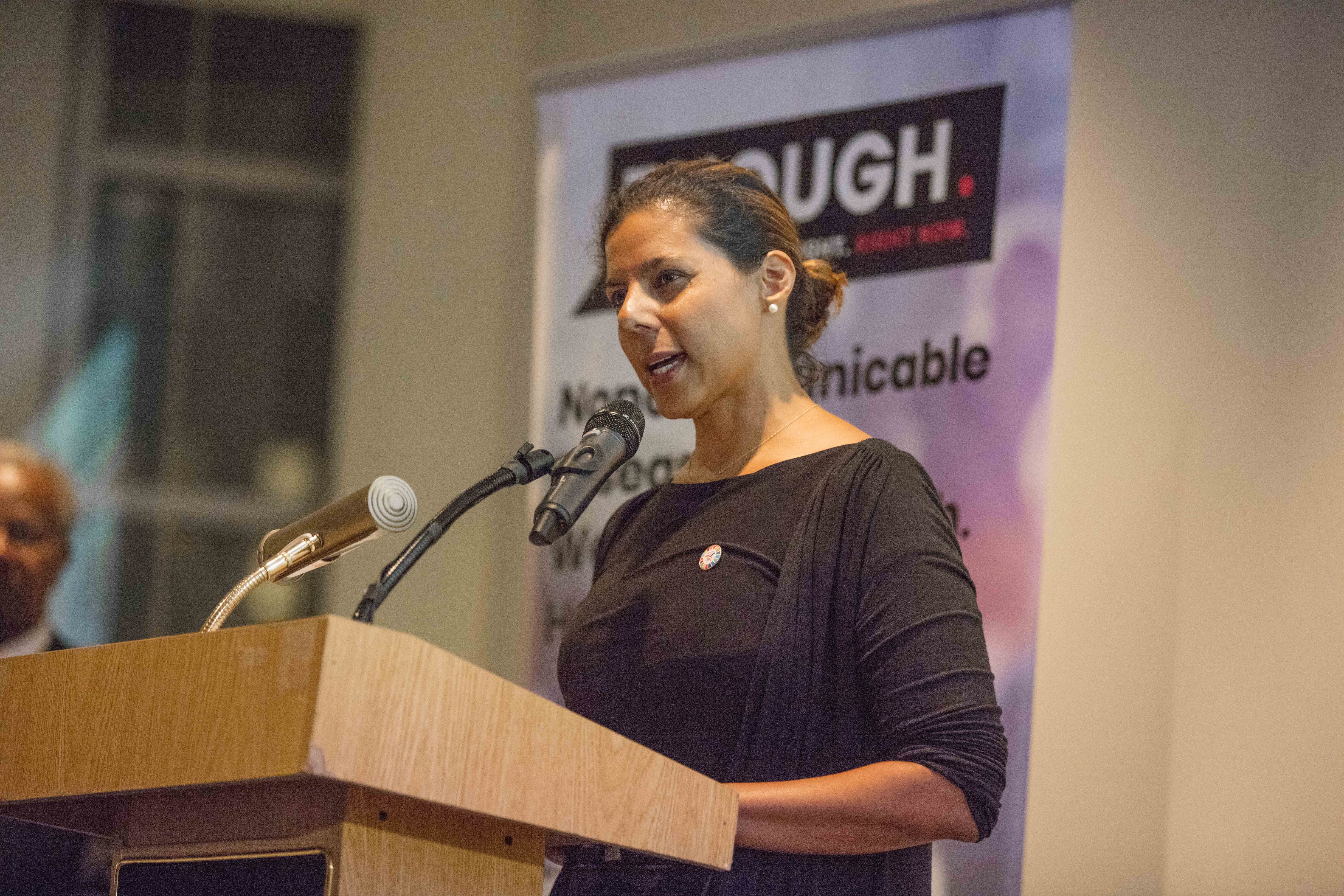
The Our Views, Our Voices initiative looks to promote efforts supporting people living with NCDs to be active advocates, engage in dialogue with policy makers and occupy key decision-making roles
The initiative has a strong advocacy component that seeks to ensure that the needs and priorities of people living with NCDs are considered and addressed in the NCD response and that people living with NCDs are directly involved in advocacy, boosting collective efforts at national, regional and global levels.


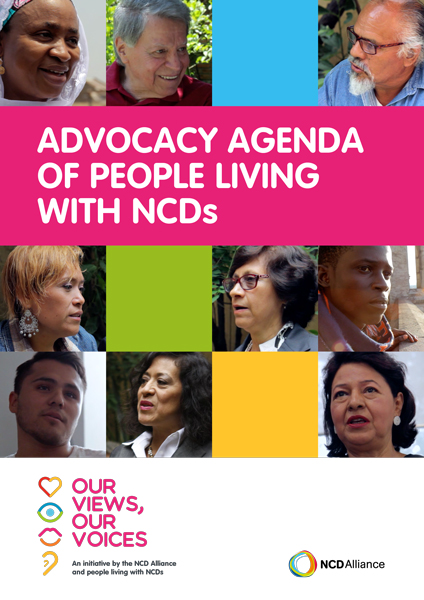
Advocacy Agenda of People Living with NCDs
The Advocacy Agenda of People Living with NCDs was built with the generous input of 1,893 people living with NCDs who took part in the Our Views, Our Voices consultation efforts. It provides a compass for NCD advocacy efforts and functions as a living document that captures the priorities of people living with NCDs. It is intended to guide and support efforts of key stakeholders to improve NCD prevention and control.
The Advocacy Agenda crystallises the recommendations of those living with NCDs. It draws from the power of the lived experience.
The Advocacy Agenda also serves to strengthen the NCD response at national, regional, and global levels. It is a reference to be used by civil society organisations, NCD alliances and people living with NCDs to present to decision makers, urging them to take action, to meet global NCD targets, and to put people first. It can be used strategically according to each setting and the advocacy opportunities that present themselves.
The Advocacy Agenda of People Living with NCDs calls for action in four key areas:
- Human Rights and Social Justice
- Prevention
- Treatment, Care, and Support
- Meaningful Involvement
These four pillars of the Advocacy Agenda are closely interrelated, and achieving progress on one will necessitate progress on all others. Human rights, social justice, and meaningful involvement of people living with NCDs are the foundation for all action on NCDs. Our ambitions to reduce the NCD burden will not be achieved without action on prevention, and we cannot make progress without providing adequate treatment, care and support.
National Advocacy Agendas
My scars tell a story not just of survival, but of advocacy, impact and hope.
Prisca Githuka Lived experience of cancer, gastroenterological, CVD and dementia.

